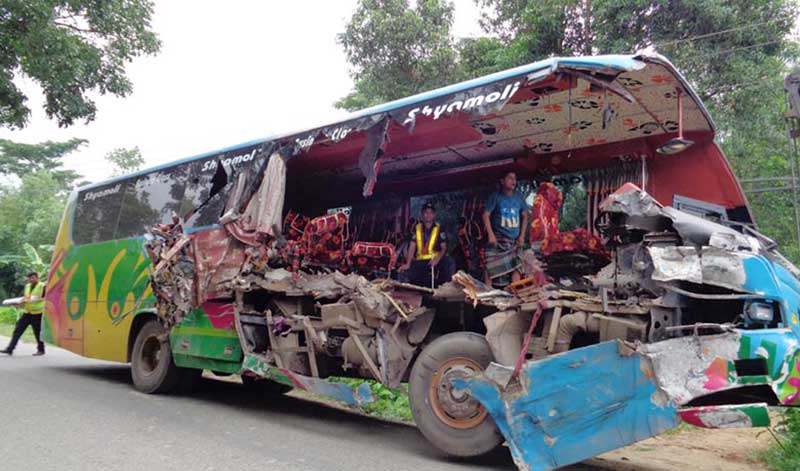Zannatul Ferdous
Communication and Documentation Officer, HYSAWA
E-mail: zannat_zf@yahoo.com
Living in Bangladesh, particularly in capital city Dhaka, has already become a challenge. Traffic condition is insane in this country. Buses, cars, rickshaws, CNGs, bikes and people move here in such a careless manner where anything can happen at any time. There has been an alarming rise in road accidents in Bangladesh over the past few years. According to a study conducted by the Accident Research Centre (ARC) of BUET, road accidents claim on average 12,000 lives annually and lead to about 35,000 injuries. A recent report by the National Committee to Protect Shipping, Roads and Railways (NCPSRR), a non-government organisation, revealed that some 2,471 people died in the last six months (January-June 2018 period) alone. The roads in Bangladesh have become a deathtrap and we are very aware of it.
There is a kind of silent acceptance among us about the current situation. It is like we have accepted that this is how our city is meant to be. The country in chaos is pretty normal, regular road accidents are too common. But how often do we complain about bumpy roads, reckless drivers or poorly-maintained vehicles? Did we ever ask ourselves how did we get here? Couldn’t we do anything in all these years? The answer is NO. Because we are always in a hurry, we do not have time to complain or talk about these issues. By turning a blind eye, we have given birth to killers who do not value human life.
Last Sunday, a tragic accident snatched away the lives of two college students and left several others injured. This is not all – at least three more students have been killed in road accidents in different parts of the country, including Dhaka in this week. The latest one comes on the fifth day of students’ agitation on demand of safe roads following the deaths of two of their peers. A video has gone viral on social media where a pick-up truck was seen speeding forward and running over a college-boy when a group of protesting students tried to stop the vehicle in Jatrabari. How is it even possible?
The students’ protest, however, has made two things clear – (i) the public has had enough, (ii) our transport system needs widespread reform. The protest has brought to the fore some justified issues in that the students on the roads started questioning underage and unlicensed driving including police vehicles. They have been seen managing traffic systems in key thoroughfares of the city way better than our traffic sergeants, cleaning the roads and even sending back the vehicle of a minister to right side of the road. This has become a movement that should be a lesson for the government. On the other hand, it brought to the fore the government’s high-handedness in that it ordered its law enforcement agencies to charge at the students – injuring many and some of them grievously. The police attacks on students show that the government, which has always appeared reluctant at sorting out important issues of public safety, tries to iron-handedly suppress people even when the demands are logical. How can police justify such action? This is, under any circumstance, unacceptable.
Now the fact is that our transport sector is in total disarray. The term ‘road safety’ still bears no meaning to the common people of the country as it has never been ensured. We all know how the system has been bedeviled by corruption, mismanagement and political influence over the years. Hence, there is a need for long-term solution to bring order in the transport sector. Those in charge of this sector must enforce traffic rules and regulations, and relevant laws and adhere to vehicle fitness protocol and its renewal. They must arrange for driver’s education and stop underage driving. As our local buses continue to be the primary source of woe for Dhaka commuters, the government should consider our late Mayor Annisul Huq’s plans to revamp our public transport system in this regard. They must bring about necessary reforms to operate it on a daily basis. We demand safe streets for all – for us and our future generation.



